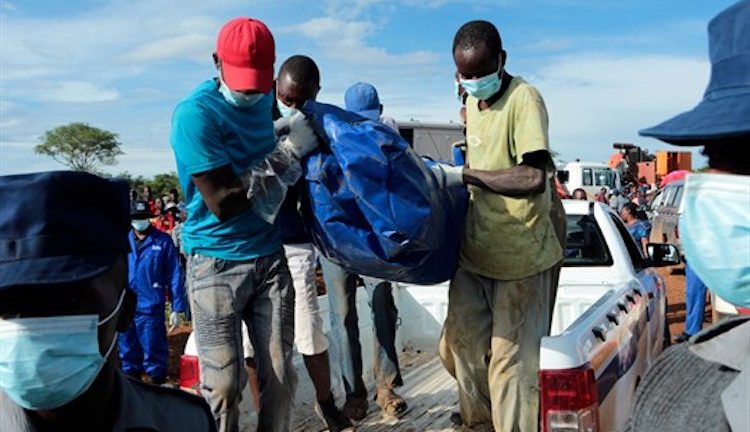By Lisa Vives, Global Information Network
NEW YORK | HARARE | 24 October 2023 (IDN) — Dozens of mothers have been sleeping on the floor just outside Bay Horse Mine, hoping for any signs of life of their husbands and sons.
When the disaster occurred, the men had been working in an inactive gold mine in Chegutu, about 70 miles west of Zimbabwe’s capital, Harare. After retrieving 22 miners alive and nine bodies, the government called off the search for the rest of the trapped men.
While up to 30 people were still underground, according to Daniel Garwe, acting minister of local government, “the ground is moving, threatening rescue teams’ lives. Operations have been stopped until a suitable area to enter the ground is established.”
The announcement angered grieving relatives of those still missing.
“It’s hard to leave knowing those rocks are pressing down on my children,” Jane Mucheni, a farmer, told Al Jazeera. “We have tried everything; every morning we have prayed [to God], and last week we even had a traditional ceremony to call on our ancestors to help us. Those who have been here with their big cars parked haven’t done anything; doesn’t anyone care?”
A dozen artisanal miners had joined the search for their colleagues trapped 800 feet underground. They carried only rudimentary picks and shovels to dig through the ground. Despite the intense heat and the suffocating smell of human remains, they pressed on until the government suspended the mission.
For years, unemployed young men in Zimbabwe’s gold-rich areas earned a living by working in unregulated mines with little to no safety procedures. Some miners said Bay Horse, an inactive mine, had collapsed because the safety pillars had been dug out by other miners hoping to strike gold ore there.
The government declared the accident a national disaster, although mine failures like this are common in Zimbabwe’s extractive sector.
Farai Maguwu, director of the Harare-based Centre for Natural Resource Governance, called the gold industry “a crime scene”, riddled with corruption. Artisanal miners, locally called ‘makorokoza’, often operate in unsafe conditions.
In the first quarter of 2023, Zimbabwe recorded $376.73m in export earnings from 6.19 tonnes in gold deliveries, according to Fidelity Gold Refinery, a state agency that is the sole authorized buyer. More than half of those earnings are attributed to small-scale miners.
Illegal exports count for more than three times that amount tallied, and smuggling involving high-ranking state officials was exposed by Gold Mafia, a four-part series by Al Jazeera’s Investigative Unit, earlier this year.
“When a disaster such as this occurs, it’s the small-scale miners who take the risk to go down; they don’t have the right rescue equipment, and they just burrow in the ground while the politicians don’t seem interested because these are the lives of poor miners, politicians seem to only worry about the gold,” Maguwu told Al Jazeera.
The search team also retrieved six corpses and several decomposing body parts of people yet to be identified. [IDN-InDepthNews]
Photo: Bodies of young miners trapped in an inactive gold mine in Chegutu. Source: GIN
IDN is the flagship agency of the Non-profit International Press Syndicate.


